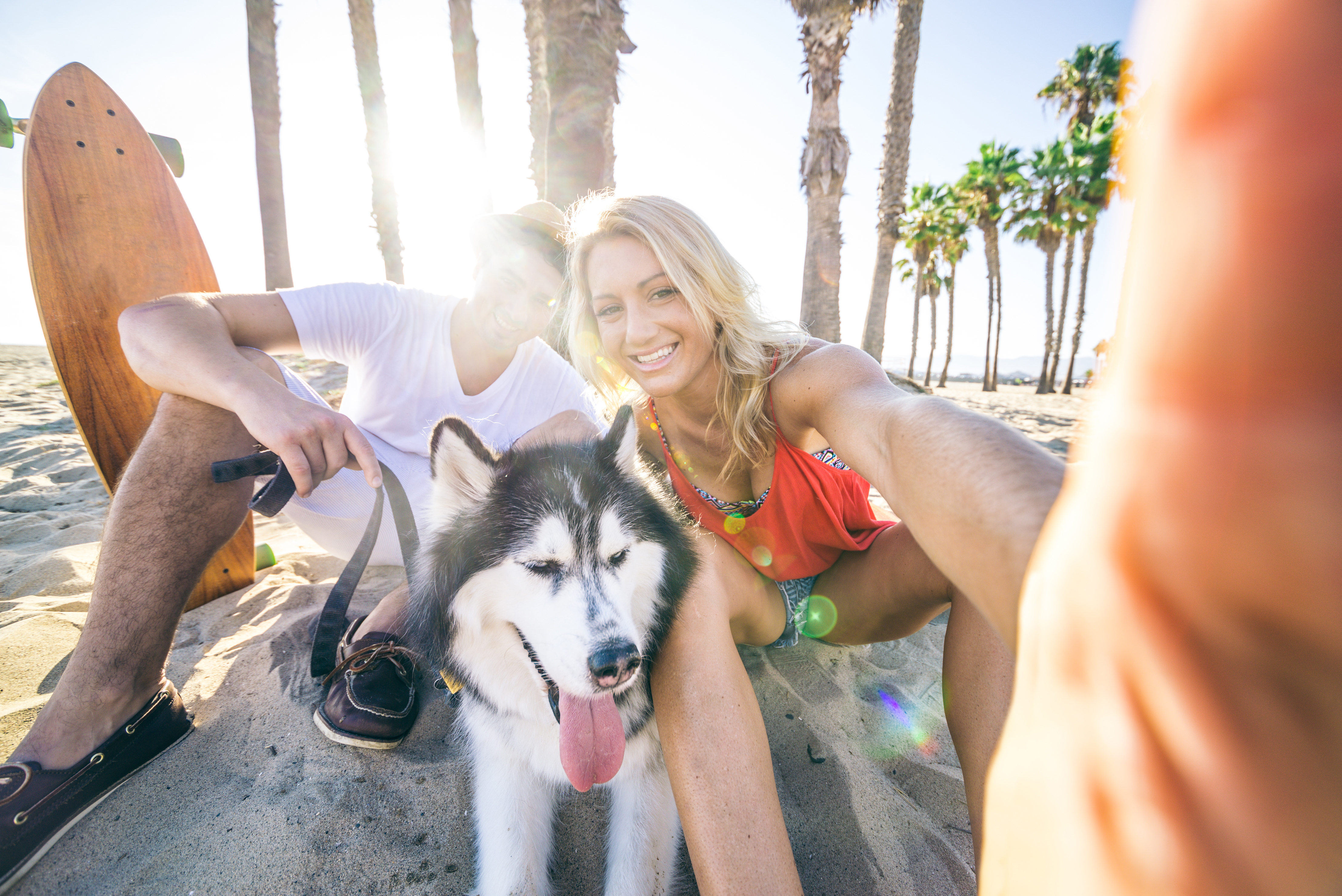By Maria Libonate, RVT
With the summer weather in full force, it’s of the utmost importance to make sure you keep your pet cool and hydrated. Heat stroke is no joke!
The normal body temperature of a cat or dog does run higher than humans, at about 99 to 103 degrees Fahrenheit. However, this does not mean that they tolerate heat better than we do. They can still overheat and dehydrate when temperatures rise so always make sure your pet is kept cool and hydrated.
Leave out plenty of cool water for them, at more than one location throughout the house if possible. If your pet is an outdoor pet, make sure they have some sort of outdoor shelter they can escape to from the heat and the sun, such as a dog or cat house. Leave water for them outside as well and make sure to check it regularly as water can evaporate quickly under the intense California sun. Have the AC running to keep them cool, or make sure windows are open, and at least one or two fans are on if they stay at home.

If you plan on traveling with them, take them hiking or to the park, make sure you take portable bowls and water to keep them hydrated during your trip. Never leave them in the car for longer than a couple of minutes at a time, even with the windows open. The inside of a car can get stiflingly hot very quickly, even if temperatures outside are only in the 70’s.
Remember, your pets have a layer of fur to insulate them, and they cannot sweat like we do, so regulating their body temperature is not going to be as quick and efficient. Pets will often pant to help release heat and do sweat through their paws some, and though it may be normal for a dog to pant, it is never a good sign to see a cat panting.
Heat stroke and dehydration can be very dangerous for pets so if you see any of the following signs, make sure you bring your pet to the veterinarian right away. Signs of heat stroke are excessive panting, collapsing, a high body temperature of above 103 degrees Fahrenheit, weakness, bright red tongue, thick and sticky saliva, red or pale gums, and vomiting. Signs of dehydration are lethargy, sunken eyes, dry mouth, and loss of appetite.

If you can not get your pet to the veterinary hospital right away, there are some basic first aid tips you can follow. Bath your pet in cool water, soak their paws in cold water, or alcohol. Offer them water to drink, and keep them as cool as possible until you can get them to your local clinic or emergency hospital.
Another thing to bear in mind is your pet’s paws when walking them outside. In extreme temperatures, the asphalt or concrete can get very hot and cause pain and even some minor burns to your pet’s paws. Be especially careful of metal surfaces such as grates or ramps as these can get even hotter. Even the soft sands of the beach can burn their paws so always be cautious when walking them outside and pay attention to their gait. If they start to limp or hop, it may be that the ground is too hot for them. Booties can help keep their paws protected if they tolerate them, or if your pet is small enough to pick up, carry them when they start to look uncomfortable or are hesitant to walk. Check their paws regularly to see if there is any irritation or inflammation and keep them cool by soaking them with some water.
Pets can enjoy the summer just as much as you can. It’s all about being safe, staying cool, and having fun!
Maria Libonate is a Registered Veterinary Technician. She works at the VCA Venice Boulevard Animal Hospital at 12108 Venice Boulevard in Mar Vista. Ph: 310.313.9118. There is also a VCA clinic at 2506 Lincoln Boulevard in Venice. Ph: 310.306.8707.



























